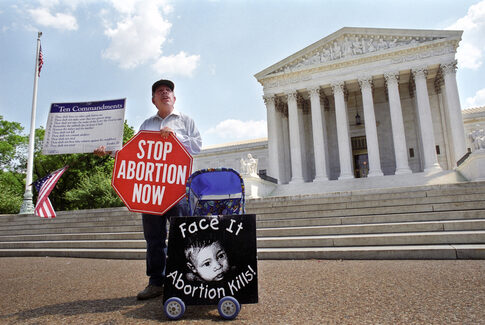The case was sent back to lower courts after the Supreme Court struck down a New York abortion mandate for religious employers. This could be a major victory for religious liberty advocates across the country. Only organizations not serving the general public were granted religious exemptions under New York’s 2017 regulation. Some religious organizations, including the Roman Catholic Diocese of Albany, claim the mandate is unconstitutional under the First Amendment.
Supreme Court Halts Controversial New York Mandate
The Supreme Court vacated a New York court decision that required religious organizations to include abortion coverage in their employee health care plans. The decision represents a significant win for faith-based employers who have long argued that such mandates violate their religious beliefs and constitutional protections. The ruling requires New York’s top court to reconsider the controversial 2017 regulation in light of recent Supreme Court precedent that has strengthened religious liberty protections across multiple areas of law.
At issue is a New York regulation mandating abortion coverage in employer health insurance plans with a religious exemption that critics argue is far too narrow. The exemption applies only to religious organizations that primarily serve people of their own faith—effectively excluding Catholic hospitals, charities, and nursing homes that serve people of all religions. The Roman Catholic Diocese of Albany and a coalition of religious organizations challenged this restriction, arguing it unfairly punishes religious ministries that help the broader community.
The Supreme Court has ordered a New York court to take a new look at whether some religious organizations should be excluded from a state regulation requiring health insurance plans to cover abortions. https://t.co/bfkJByMpWG
— Freedom Forum (@1stForAll) June 16, 2025
Religious Organizations Fight Back
The challenge to New York’s mandate was led by the Roman Catholic Diocese of Albany along with other religious organizations, including Catholic Charities, a nursing home, and a retirement community. These groups argued that forcing them to cover abortion in their health plans violates core Catholic teachings on the sanctity of human life. The Becket Fund for Religious Liberty, which has successfully represented religious organizations in similar cases, provided legal support for the challenge.
Despite strong arguments from religious organizations, the New York Court of Appeals had previously rejected their challenge. The state’s attorneys maintained that the religious exemption constitutes a “denominationally neutral accommodation” and a “generally applicable” law under previous Supreme Court precedent. This position was upheld by the state’s highest court as recently as May 2024, which declared that the regulation and limited religious exemption did not violate the Constitution’s free exercise clause.
The Supreme Court has bolstered religious employers' challenge to New York's mandate requiring abortion coverage in health insurance plans. pic.twitter.com/Z0cgUHn5Ku
— Tom (@Tomd200) June 16, 2025
A Pattern of Religious Liberty Victories
The Supreme Court’s decision to vacate the previous ruling follows several significant victories for religious liberty in recent years. The Court has repeatedly ruled in favor of religious exemptions in similar cases, including a 2021 ruling involving a Catholic Church-affiliated group in Philadelphia and a 2020 ruling on the Affordable Care Act’s birth control coverage mandates. Most recently, the Court ruled that Wisconsin unlawfully denied tax exemptions to Catholic Church-affiliated charitable groups, creating a precedent that directly impacts the New York case.
Attorney Noel Francisco, representing the Catholic organizations, expressed confidence following the Supreme Court’s action, suggesting that New York will “finally get the message and stop discriminating against religious objectors.” The decision sends a clear message that states seeking to restrict religious exemptions face steep constitutional challenges. When the case returns to the New York Court of Appeals, the lower court must reconsider its stance using the Supreme Court’s increasingly robust religious liberty jurisprudence as guidance.
Broader Implications for Religious Freedom
The Supreme Court’s decision in this case could have far-reaching implications for similar religious liberty disputes across the country. Religious organizations have increasingly faced mandates that conflict with their core beliefs, from abortion and contraception coverage to hiring practices and adoption services. By continuing to strengthen protections for religious organizations, the Court is establishing clearer boundaries on government regulations that impact faith-based groups providing essential community services.
The case now returns to New York’s highest court, where justices must reconsider whether forcing religious organizations to violate their beliefs by covering abortion serves a compelling government interest that cannot be achieved through less restrictive means. Given recent Supreme Court precedents, religious liberty advocates are hopeful that New York will be required to broaden its religious exemptions to include all faith-based organizations, regardless of whom they serve.


